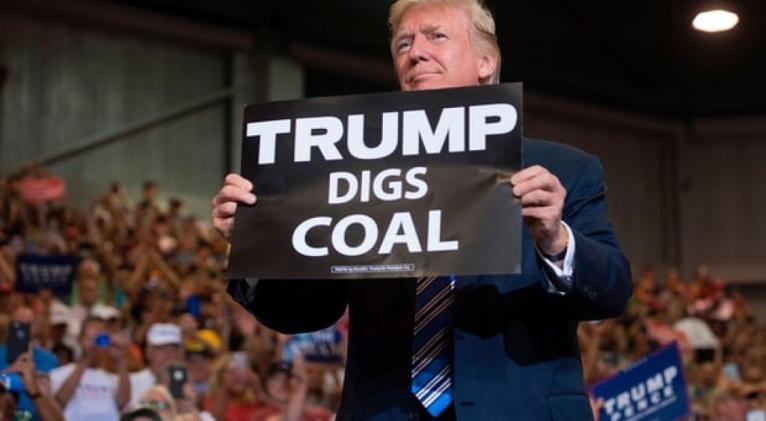Donald Trump is hampering fight against climate change, WEF warns
especiales

The World Economic Forum delivered a strong warning about Donald Trump’s go-it-alone approach to tackling climate change as it highlighted the growing threat of environmental collapse in its annual assessment of the risks facing the international community.
In the run-up to the US president’s speech to its annual meeting in Davos, Switzerland, next week, the WEF avoided mentioning Trump by name but said “nation-state unilateralism” would make it harder to tackle global warming and ecological damage.
The WEF’s global risks perception survey showed Trump’s arrival in the White House in 2017 had coincided with a marked increase in concern about the environment among experts polled by the Swiss-based organisation.
t said all five environmental risks covered by the survey – extreme weather events, natural disasters, failure of climate-change mitigation and adaptation, biodiversity loss and ecosystem collapse, and human-made natural disasters – had become more prominent.
“This follows a year characterised by high-impact hurricanes, extreme temperatures and the first rise in CO2 emissions for four years. We have been pushing our planet to the brink and the damage is becoming increasingly clear.
“Biodiversity is being lost at mass-extinction rates, agricultural systems are under strain, and pollution of the air and sea has become an increasingly pressing threat to human health.”
Trump has threatened to withdraw the US from the 2015 Paris agreement under which nations agreed to take steps to limit the increase in global temperature. He has said the commitments made by his predecessor, Barack Obama, would damage the American economy.
Other states have said they will keep to the pledges made in Paris, an approach supported by the WEF.
“A trend towards nation-state unilateralism may make it more difficult to sustain the long-term, multilateral responses that are required to counter global warming and the degradation of the global environment,” it said.
The survey said the extreme weather events in 2017 included unusually frequent Atlantic hurricanes, with September the most intense month on record. It was also the most expensive hurricane season.
It added that when data was finalised, 2017 would be among the three hottest years on record, and the hottest without an El Niño, the Pacific Ocean climate cycle that affects the world’s weather.
Biodiversity loss was occurring at mass-extinction rates, the WEF said, noting that the populations of vertebrate species declined by an estimated 58% between 1970 and 2012.
“Globally, the primary driver of biodiversity loss is the human destruction of habitats including forests – which are home to approximately 80% of the world’s land-based animals, plants and insects – for farming, mining, infrastructure development and oil and gas production.”
Stronger than expected growth in 2017 meant economic risks were seen as less pressing, but the WEF said the upbeat picture masked continuing underlying concerns, including unsustainable asset prices; high levels of indebtedness, particularly in China; and continuing strains in the global financial system.
The International Monetary Fund is likely to raise its forecast for global growth when it gives its latest economic update in Davos next Monday, and the WEF survey said the recovery underway in all major economies had to led to a sharp improvement in sentiment.
But it expressed concern that the swing to optimism might lead to complacency and a blind spot to economic risks. “There are certainly reasons to be cautious: one does not have to look far for signs of economic and financial strain”, the WEF added, calling for greater attention to be paid to the risks of another crisis erupting.
The survey warned there would be limited policy firepower in the event of a new crisis. It also warned of the disruption caused by automation, noting that “for the foreseeable future, automation and digitalisation can be expected to push down on levels of employment and wages, and contribute to increases in income and wealth at the top of the distribution.”
It also highlighted the buildup of protectionist pressures against a backdrop of rising nationalist and populist politics and growing cybersecurity risks.
The WEF said cyber attacks against businesses had almost doubled in five years, and that the financial impact of cybersecurity breaches was rising.













Add new comment